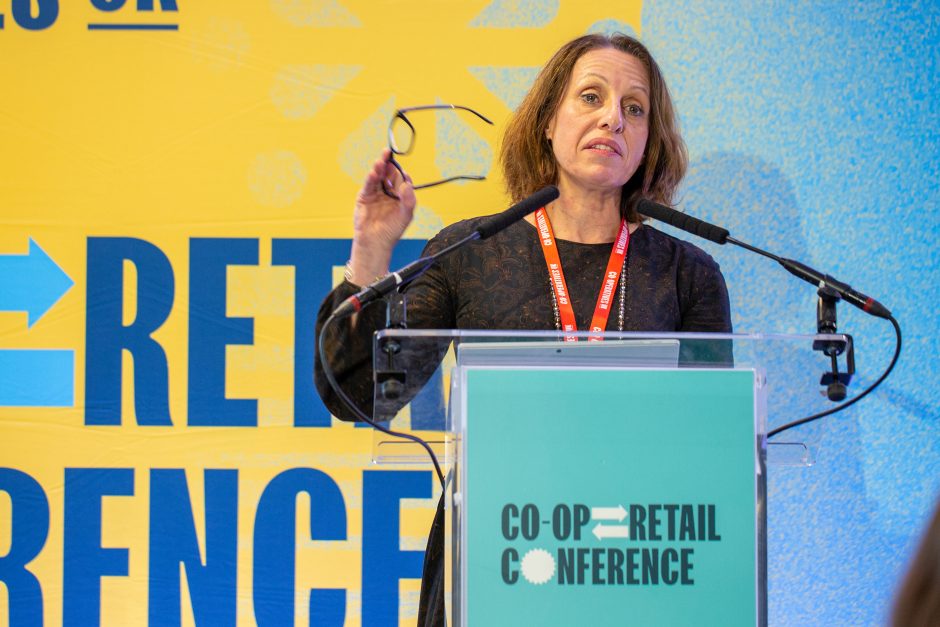The Co-op Group and Midcounties have become the first UK convenience retailers to have their net zero targets validated in line with the most recent standards set by the Science Based Targets initiative (SBTi).
SBTi – the global body that assesses corporate climate targets – has validated the Group’s ambitious near-term and overall targets to become net zero across its own operations by 2035, and entire value chain by 2040. This is in line with the new net-zero standard set by SBTi last year.
The Group, which operates 2,400 food stores across the UK, is also one of the first businesses in the UK to set science-based targets for its forest, land and agriculture (Flag) emissions.
The ratified targets include stretching commitments to reduce the absolute Scope 1 and 2 emissions from its own operations by 66% and absolute Scope 3 emissions from energy and industrial sources by 58.8% by 2030 from a 2016 baseline year.
The Group has also committed to reduce absolute scope 3 FLAG emissions by 42.4% by 2030 from a 2016 base year. This is coupled with a stated target of no deforestation across its primary deforestation-linked commodities by the end of 2025.
Meanwhile, Midcounties, which has over 230 retail stores, and a national presence, had its greenhouse gas (GHG) emissions science-based targets agreed and validated by SBTI in January. It has targets to reduce its absolute direct GHG emissions by 50%, and its absolute indirect GHG emissions associated with products and services by 32% by 2030 (compared to 2019 levels).
The SBTi validation follows other accolades, including the Edie sustainability award for energy project of the year in April 2023.
Head of sustainability Mike Pickering said: “The SBTi have commended our ambitious 1.5°C-aligned target, currently the most ambitious designation available through the SBTi process. This essentially means that our GHG reduction targets are in line to help limit global temperature rise to 1.5°C, which is the level identified by climate scientists as the critical level to prevent irreversible climate change.
Related: Midcounties joint venture with Octopus backs its 200th community energy project
“Furthermore, having our GHG reduction targets validated by SBTI is also one of our sustainability linked banking targets, and we have therefore achieved this ahead of our target of January 2025.
“In order to achieve these targets we will continue to invest in replacing equipment across our trading sites, including installing new refrigeration and low energy lighting, and we plan to invest in automation controls to maximise energy efficiencies across our refrigeration and heating and cooling systems in our Food stores.
“Furthermore, working in partnership with Big Solar Co-op we plan to develop self-generation renewable energy opportunities by rolling our solar panels across a selection of our sites. To further support renewables we plan to implement corporate power purchase agreements with community energy producers to provide a significant amount of our overall society energy needs.
“We also have an ambitious target of reducing the number of food items that we waste through our food stores by 30% compared to 2019 levels to help reduce our indirect GHG emissions.”
Another UK retail co-op, Southern, has been a leading player in terms of SBTi, being commended for an older set of standards in 2021, and is currently working on having its targets revalidated.
Related: Co-op Group unveils ten-point plan to hit zero-carbon by 2040
The Group, which launched its Climate Plan in 2021, has already made significant progress in reducing its carbon footprint including a 21% reduction against a 2016 baseline in Scope 3 emissions.
It has also successfully more than halved (59%) its Scope 1 & 2 emissions across its own operations.
This has been achieved through investment in low-carbon technologies including reducing energy use, phasing in lower impact refrigerants, and reducing fuel use for transport as well as action taken by the Group and its suppliers to reduce the carbon intensity of key lines such as meat and dairy.

Shirine Khoury Haq, Co-op Group CEO and co-chair of the government’s Net Zero Council, said: “Reducing our impact on the planet is so important, which is why we are now building on the progress we have already made to date by setting ourselves challenging and robust targets. I’m delighted and proud that we are the first UK convenience retailer to have net-zero targets validated by the globally recognised body, SBTi. We are committed to maintaining the positive momentum we have already achieved in the decarbonisation of our supply chain.”
The Group says its Climate Plan outlines three core principles in its commitment to reach net zero: pledging: “We’ll follow the science, we’ll work for a fair and just transition, and we’ll co-operate to drive systems change.”
These are underpinned by projects which include a focus on natural restoration and innovation, campaigning for climate action, and partnerships to drive climate innovation and the delivery of water security within Co-op’s supply base.
Efforts include: work with suppliers to identify priority decarbonisation actions and build these into joint business plans; developing new programmes with meat and dairy suppliers, such as a pilot of a bonus payment that rewards beef farmers who have invested in lower carbon production practices; and helping develop and test new carbon reduction solutions through Co-op’s Carbon Innovation Fund
“We’ll work for a fair and just transition for people and planet,” adds the Group. “Solving the climate crisis can’t come at the expense of those who can least afford it”.
This “fair transition to net zero for people across the world” means “supporting climate adaptation for farmers and workers on the frontline of the climate crisis e.g. investing in Fairtrade Africa’s climate strategy, the Fairtrade Alliance for Climate Supply Chains in Africa, to take meaningful action against climate change”, it says.
The Group adds that it will “co-operate to drive systems change because we recognise that we are stronger and more effective when we work with others”.

Specific projects include investment in landscape-scale projects, such as the RSPB Peatland Restoration scheme, that will turn hundreds of hectares of peatland from a carbon source into a carbon sink, and improving data access along the food and drink supply chain by taking a leading role in the BRC Mondra Coalition, Defra Food Data Transparency Partnership, WRAP Retailer Net Zero Collaborative Action Programme and other initiatives.
Related: Co-op Foundation focuses on peatland in round three of Carbon Innovation Fund
The Science Based Targets initiative (SBTi) is a global body enabling businesses to set ambitious emissions reductions targets in line with the latest climate science. It is focused on accelerating companies across the world to halve emissions before 2030 and achieve net zero emissions before 2050.
The initiative is a collaboration between CDP, the United Nations Global Compact, World Resources Institute (WRI) and the World Wide Fund for Nature (WWF) and one of the We Mean Business Coalition commitments. The SBTi says it defines and promotes best practice in science-based target setting, offers resources and guidance to reduce barriers to adoption, and independently assesses and approves companies’ targets.

